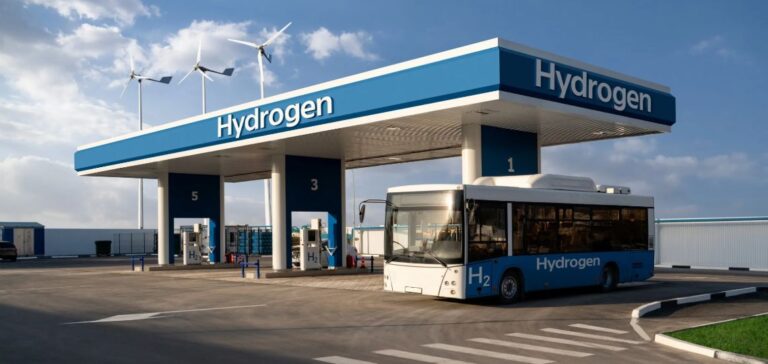The hydrogen industry, seen as a strategic lever to decarbonize industrial and transport sectors, continues to face persistent challenges. At the Hyvolution trade show in Paris, which gathered 530 international exhibitors, industry players showcased promising advancements but also highlighted obstacles that are slowing their progress.
A sector in search of capital
In France, efforts to build an industrial hydrogen sector are multiplying, with the development of gigafactories for electrolyzers and mobility projects such as hydrogen-powered taxis and utility vehicles. However, these initiatives remain insufficient to trigger a real scaling-up.
According to Philippe Boucly, president of France Hydrogène, “the planned budgetary support for production is still pending,” as is the revision of the national hydrogen strategy. Across Europe, only 3% of announced projects in 2024 received final investment approval, according to an analysis by EY. This represents a production capacity of 300,000 tons of decarbonized hydrogen, far from the 10 million tons the European Union aims to produce by 2030.
Underdeveloped infrastructure
The competitiveness of green hydrogen remains a critical issue. The market is dominated by grey hydrogen, produced through steam methane reforming, a method still widely used but highly CO2-intensive. In 2023, global hydrogen production resulted in 920 million tons of CO2 emissions, according to the International Energy Agency (IEA). To reverse this trend, industrial players need to deploy costly infrastructure, such as electrolyzers and distribution networks, while ensuring a reliable supply of low-carbon electricity.
China, having gained a significant lead in the production and integration of these technologies, adds additional pressure for European players. In Europe, the lack of public support and delays in approvals are holding back the industry’s growth.
Quotas and competitiveness levers
A recent study by the Potsdam Institute for Climate Impact Research (PIK) identifies three major obstacles: high costs, reluctance from clients to pay a premium for green hydrogen, and uncertainties around public subsidies. To bridge this gap, some experts advocate introducing mandatory quotas in specific sectors.
In aviation, for instance, Europe plans that starting in 2030, 1.2% of fuels must include synthetic components based on hydrogen, with this figure rising to 35% by 2050. These quotas could become a driver for structuring the market and attracting new investments, but they require close coordination between regulators and industry players.






















